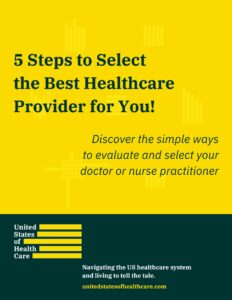Recovery from Surgery – Tips for Care After Surgery

When post-operation complications arose during my husband’s recovery from knee replacement surgery, we quickly had to learn to take the lead in the process. We had to become our own health advocates and fast if we wanted his recovery from surgery to improve.
On a September Monday, while enjoying a 7-week house-sit on the upper west side of Manhattan in a building between the northern end of Central Park and the Hudson River, I had one of those mornings that went on for days. George, my former husband, had a knee replacement surgery, and the recovery from surgery was not going well. [here’s information on creating a before and after surgery plan.]
Only a few days since his discharge, and we are on the borderline of chaos. This Monday morning, I hoped the phone call I was about to make would save us from slipping deeper into the impending turmoil.
Recovery after knee replacement surgery – step one ask for help
Thanks to Sally, our homecare nurse assigned by the hospital, I knew who to call and when to call. So, at 8:30 am, I placed a call to the hospital’s homecare department head. Sally encouraged me to call her boss. Sally instructed me to describe in detail what was happening with George. Sally held up a mirror for our family and reiterated that “yes” things are as bad as you think, and “yes,” start sounding alarm bells.
• Seek the counsel of a knowledgeable friend, a nurse on your case, your community pharmacist.
• Describe the situation and ask for advice.
Recovering from surgery at home — Getting and following recommendations
- George is confused.
- His knee may be healing, but he cannot be left alone to manage his medications.
- The home care nurse and the physical therapist have commented on his confused state.
- I have asked them to put these observations and concerns into their clinical notes.
I also gave a complete description of his medications and the dosages. I noted the recommendation for 24-hour care from Sally; the fall he took a month before the surgery, and my request, which was ignored, to have George released to rehab for 5-days after-surgery.
Instead, they sent him home, and we have what we have: a mess. I am sure Sally had already filled in additional details–no one tells you “yes, call my boss” and then doesn’t give the boss a heads up.
During our short phone conversation, Bev gave me my “assignments.” Her main message: George’s doctors needed to be alerted to the full-reality of what was happening and then asked to recommend a course of action.
Surgery aftercare more than what we expected
Bev coached me to be an active participant in the care after surgery. Even though I was afraid, I acted on every one of her suggestions. I approached this call as a lifeline, and I held on to her every word. In retrospect, it was by following Bev’s advice and calling George’s doctors to account that allowed us to get to the next proper steps for George. Months later, I could track the positive outcomes (lucky for us) to these initial steps of calling his doctors and advocating for action post-operation.
The director empowered me to ask questions and respectfully demand action.
Here are the steps that she gave me:
“Call his primary care provider,” she instructed, “and explain the situation to him as you have to me. Then, call his psychiatrist and review your concerns with him. Do that this morning.”
The urgency and firmness in her voice got through to me. My charge was to call these other providers into action. I hung up with her, partially relieved and also stunned.
What was happening? How could we be here? I was shaking with anticipation as well as anger and relief. I felt empowered by Bev. She explained I needed to call these doctors to action. These early days where I unwittingly became George’s health advocate, were like taking a new route to a familiar destination. Would we ever get there was the sinking feeling that ran as an emotional undercurrent. I made a few notes to counter this sense of disorientation, took a few breaths to prepare myself to talk to these doctors, then dialed.
Care after surgery — self-advocacy works
The conversation with the psychiatrist got us to the correct doses of George’s medications. The hospital discharge paperwork was wrong. We would deal later with confronting the psychiatrist about why George was on so much medication. For now, we were dealing with the crisis at hand, George’s profound confusion, and what was the root cause.
So, Ricky, George’s health aide, administered the psychiatric medicines at the correct doses. CHECK. (Read Preparing for Surgery: How to ensure your electronic medical record (EMR) is accurate for more protips. The post also includes tips on how to work with your community pharmacist)
Complications after surgery — your primary care doctor can be your healthcare quarterback
Later that morning, while at work, the Primary Care Provider’s (PCP) office returned my call. His medical assistant placed the call. “Hello,” she said and introduced herself, “I’m Doctor O’s medical assistant; perhaps I can help you.”
Sometimes, a busy primary care office will have the medical assistant (MA) call to determine if the question does not require the doctor. In our case, we needed to speak directly to our doctor. So this is how I answered:
“Well,” I said, “if you can explain to me why an MRI was not ordered for my husband when he fell down a flight of stairs a month ago; how you cleared him for major surgery given his high state of confusion. Oh, and if you can, please tell me the next steps for his care because he is in a severe state of confusion after his knee replacement surgery, then sure, I’ll talk to you. ”
On the one hand, I hated myself for being so sarcastic with this young woman. At the same time, I shook my head at the absurdity of the entire situation. My neck and shoulders grew tighter, and I wondered if I would ever be able to look side to side again.
She was baffled. The next thing I knew, Dr. O was on the phone. Over 20 years before, George and I were doctor O’s first patients when he was a newly minted PCP in the practice of Dr. F. We cheerfully agreed to give him a try. George and Dr. O go way back. George is in the doctor’s office every year for his “annual” and multiple times for other checks. They know each other. They have a relationship. Or so I thought.
How to advocate for yourself with the doctor – an example conversation
Here is how my conversation went with Dr. O:
I explained to Dr. O the situation. George is massively confused, unclear about basic things like what day it is, and that as a consequence, we have 24/7 care at the house after his surgery.
“Dr. O,” I began, “I was surprised that you cleared George for surgery given he’d fallen down a flight of 13 stairs the month before.” “Weren’t you concerned when George showed up with his legs covered in cuts and bruises and a massive black eye?”
“Did you order an MRI at the time?” I already knew the answer, but I wanted to make a point.
“No,” he said.
“Why not, “I asked.
He mentioned that it did not seem warranted. I described George’s confusion and forgetfulness. I reiterated that now we had full-time care because of his confusion, the fear of another fall or mismanagement of the multiple powerful medications he was taking, or all of the above. I reiterated that George’s homecare nurse recommended full-time care. I also recounted my conversation with the hospital’s homecare department director and her suggestion that I call Dr. O and provide a complete rundown of the current situation.
I went a little deeper. George’s struggles were not new. Unrelated to his surgery, I had noticed his confusion, slurred speech, and other concerning behaviors.
“Dr. O,” I said, “haven’t you noticed any changes in George in the recent past? You’ve known him for over 20 years.”
“Well, I’ve noticed he’s getting older,” he said with a nervous laugh.
Momentarily speechless, I chose my words and kept my tone flat.
“I think it’s more than natural aging that’s causing these issues. What do you recommend?”
He suddenly launched into action and recommended an MRI and an appointment with a neurologist to get an assessment. I gave him the number for the health aide, Ricky, at home with George.
Why it’s essential to be your own health advocate when recovering from surgery
Less than an hour later, I heard from Ricky. There was an appointment for an MRI and an appointment with a neurologist over the next two days. “Wow,” said Ricky, “you know how to get things done.”
Honestly, I was in shock that we had made so much progress. The coaching from the homecare nurse paid off. Speaking up for George and what we needed made a difference. This would not be the last time we would need to insist on a course of action with the healthcare providers in our path—my first of many practice rounds in flexing the self-advocacy muscle. I learned not to assume that the healthcare providers were thinking through every angle. Notice that we are dealing with all of these issues and the surgeon played no role. As far as the surgeon was concerned, all was well since the knee was healing.
I felt terrible that George was going through all of this, only a week since his surgery. I knew that the neurologist needed to see him when he was exhibiting these symptoms. There was no point in waiting. Ricky would take him to both appointments. He would attend the consults, provide background information, take notes, and report back to me.
Why do you need someone to stay with you after surgery
Our case is extreme, but anything can happen after major surgery. In our case, other underlying medical issues got worse after the knee replacement surgery. No one on the healthcare team — especially not the surgeon expected to deal with the types of complications George experienced. With family and friends around to observe, ask questions, and seek help, the healthcare providers were alerted and called into action. Thankfully, George had a full recovery and not a healthcare disaster.
My number one recommendation for recovering from surgery at home is to own your health care, be coachable and follow the advice of the professionals on your team.
Sally, the RN on our team, and her boss, Bev, were the knowledgeable professionals on my team. Without their coaching, I can only imagine the outcome.
With this first taste of the fruit of self-advocacy, I had a renewed hope. On that very long September morning, I learned that being respectfully assertive with George’s doctor was the right thing to do. Bev coached me on what to do, and I followed her lead. Her coaching was the catalyst to this series of actions. I’ll be forever grateful to her for taking the time to listen and coach me to the next right step.
Weeks later, I called to thank her and asked her to use my husband’s situation as a case study with her team to spare another family from a precarious situation like ours.

